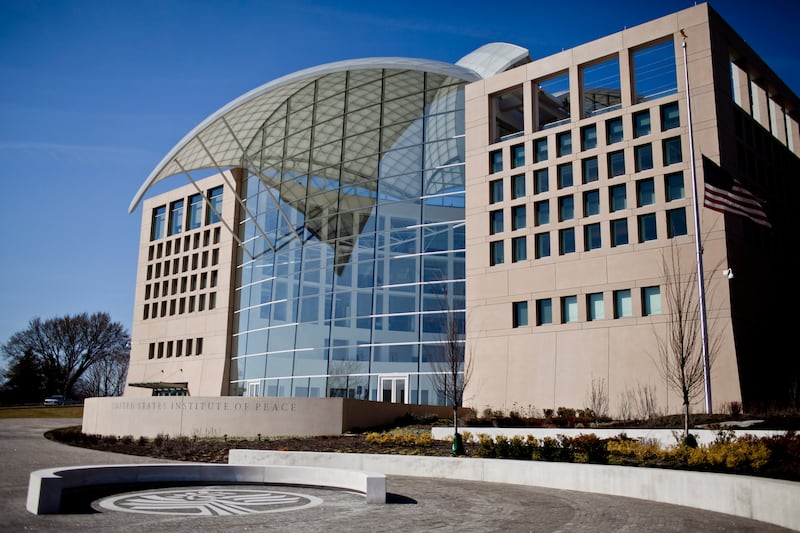A small federal agency forced out of its headquarters by the Trump administration has regained control of its building after a federal judge declared the DOGE takeover “null and void.”
U.S. Institute of Peace acting president George Moose reentered his Washington office on Wednesday for the first time since March, when he and many other agency leaders were booted out by DOGE staffers who declared them “unnecessary.”
“We are now back in the building and we intend to resume our stewardship and custodianship,” Moose told reporters in an impromptu briefing outside the USIP building. “It is not just the platform from which we’ve been doing our work—it is a symbol of the aspirations and the intent of the American people to be seen and to be peacemakers in the world.”

Moose reportedly reentered USIP headquarters with private security and the agency’s attorney.
“We just did a quick walk-through. Externally, visibly, things look to be in pretty good shape,” he said. “I didn’t see anything, any destruction, if you will, no damage that I can see that is visible.”
USIP regained access to its building days after federal judge Beryl Howell ordered the reversal of DOGE’s sweeping cuts.
The saga started when Elon Musk’s DOGE lackeys arrived unannounced at the USIP office in March, but were turned away by the institution’s attorney who stood firm on its independence as a non-executive branch agency. After a days-long standoff, Capitol police kicked staff out.
Soon after, USIP staff began receiving termination notices as DOGE took a chainsaw to the federal government in a bid to cut spending. Nate Cavanaugh, a 28-year-old DOGE staffer, was installed as the institution’s new head.
Agency leaders hit back by suing the Trump administration. Howell wrote in her ruling favoring USIP that the removal of the agency’s leaders and their replacement by DOGE affiliates was “effectuated by illegitimately-installed leaders who lacked legal authority to take these actions, which must therefore be declared null and void.”
But the saga isn’t over yet. The Trump administration appealed Howell’s order on Wednesday, arguing that the USIP is part of the executive branch because it is “tasked with executive powers” and “perform[s] executive functions.”
Congress established USIP as a nonpartisan, independent agency in 1984 to protect “U.S. interests by helping to prevent violent conflicts and broker peace deals abroad,” according to its website.
“As such… the Institute’s Board is removable at the President’s will,” newly-named D.C. prosecutor Jeanine Pirro wrote in the administration’s appeal. “The Court’s conclusion that the Institute, a creation of statute, is also not part of any branch of the federal government is an unprecedented holding and one that appears to contradict the analytical underpinnings of several binding and persuasive precedents.”

